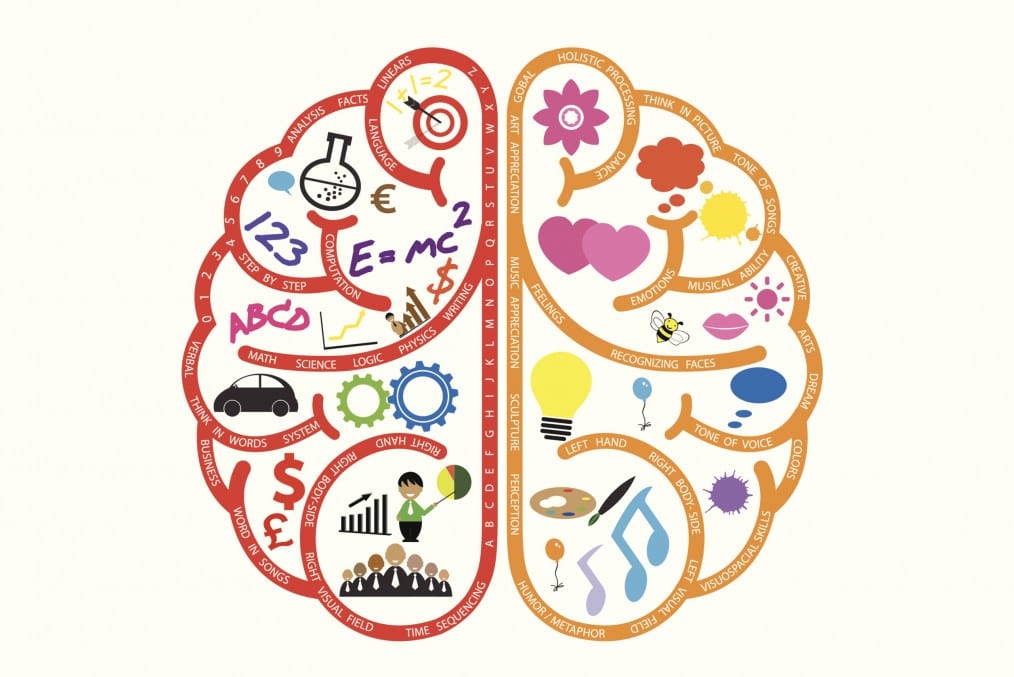7 ways to do a brain workout

Do you think about how to keep your brain in shape? Norman Doidge, a New York Times bestselling author and member of the Research Faculty at Columbia University’s Center For Psychoanalytic Training And Research, shows how to keep yourself sharp.
1. Use it to improve it
The brain is neuroplastic, meaning that keeping it active can change its sttucture. As we form memories, exercise, think or learn new skills, it forms new connections and strengthens. We can use this knowledge to help improve cognitive impairment symptoms in patients with brain problems, including those with Parkinson’s (taking regular walks improved patients symptoms, a US study found) and stroke.
2. Fit body = fit brain
Walking at least two miles a day has been found to reduce dementia risk by 60 per cent, if combined with a healthy diet and maintaining a healthy weight. It’s thought that walking encourages the brain to release growth factors, strengthening connections between cells. Research by the University of Pittsburgh, USA, suggests vigorous aerobic exercise enlarges the hippocampus, the area of the brain thought to convert short-term memories into long-term ones, and often the first to show age-related degeneration.
3. Visualise success
Remembering or imagining an experience can strengthen the brain as much as the actual experience itself. Brain scans show that when people think through an activity, eg imagine doing scales on an instrument, they improve nearly as much as when they play the instrument physically. This is because a similar group of neurons are activated when we mentally practise an activity as when we physically do it. Giving yourself a mental rehearsal can help you be more effective when you act out these tasks.
4. Don’t multitask
Our world is geared towards multitasking. However, multitasking actually overloads our brain and nervous system, which means we’re not only inefficient but also slower at the tasks in hand. So give your brain a break by getting ‘unwired’ every day. I like to do tai chi – it’s been shown to strengthen certain areas of the brain, plus it’s a form of moving meditation – so it’s good if you’re more sedentary.
5. Try neurofeedback
This is a practice that helps people learn to control their brain waves (electrical activity produced by neurons in the brain); studies show it can be successful in treating conditions such as sleep problems, chronic pain, epilepsy and learning disorders. It involves being connected to an electroencephalogram (EEG) to monitor waves and see which areas of the brain have too much, or too little, activity. Neurofeedback can also help change negative mind-sets, including anxiety, fear and stress*.
6. Think like a child
As we age we use our brains less, relying instead on already mastered skills. Do something new that requires great concentration – learn a language or try salsa dancing. It works the nucleus basalis, the part of the brain responsible for attention span, so it’s easier to form new connections.
7. …but do grown-up puzzles
BrainHQ, developed from the work of neuroplasticity pioneer Michael Merzenich, is designed to train specific brain areas and improve memory. People who took part in a six- week study not only got better at the programme, but improved their brain functioning in everyday life – and these effects were still as strong 10 years later, long after the study had finished. Visit brainhq.com to download exercises for free. Norman Doidge is author of The Brain’s Way Of Healing Itself (Allen Lane, £20), out now.
8. Sleep
During sleep, brain cells called glia help eliminate toxins in the brain – including proteins found in dementia patients. Sleep also helps strengthen connections between neurons (cells that process and transmit information). Practise your sleep time and recognise it’s OK to switch off. Your brain will thank you for it.
Norman Doidge is author of The Brain’s Way Of Healing Itself (Allen Lane, £20), out now.











